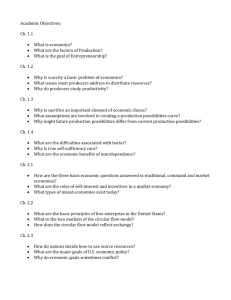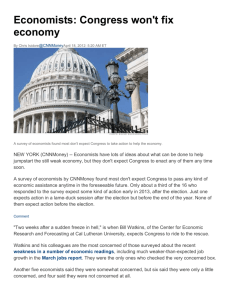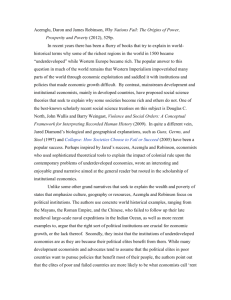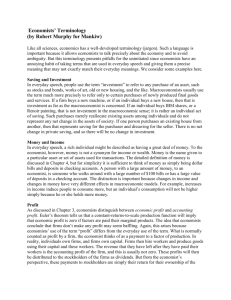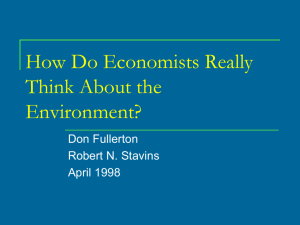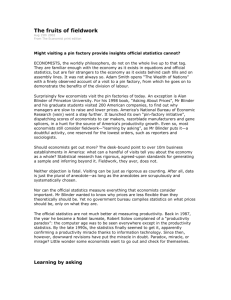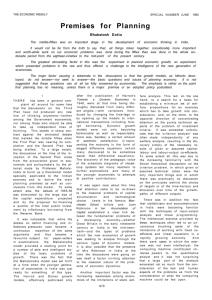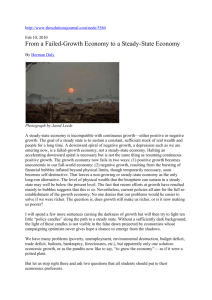Econ 4440/5440 Ch 1 Stavins Powerpoint created by Dr
advertisement
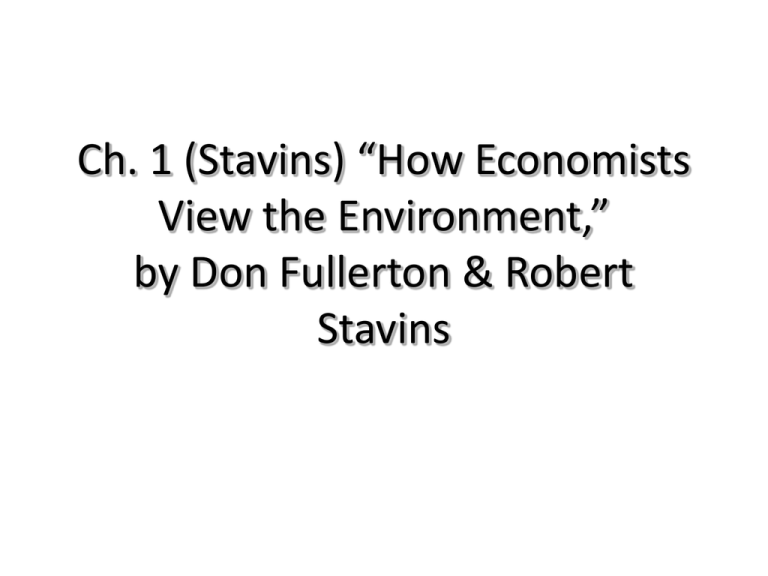
Ch. 1 (Stavins) “How Economists View the Environment,” by Don Fullerton & Robert Stavins Introduction • Several prevalent myths about economists’ view of the environment • Reasons? –1) Perhaps due to economists’ enthusiasm for market solutions –2) Economists’ failure to clearly state caveats –3) Economists use too much jargon (everyone does this, e.g. computer nerds) 1) Myth of Universal Market • Market solves ALL problems • Adam Smith “Father of Economics” espoused invisible hand principle: markets are efficient • But economists do note several caveats – – – – – – – – – 1) No public goods 2) No externalities, e.g. pollution 3) No monopoly 4) No increasing returns to scale 5) No information problems 6) No transaction costs 7) No taxes 8) No common property , e.g. wildlife 9) No other distortions between costs & benefits 2) Myth of Market Solution • Economists always recommend market solutions • Economists tend to search for market solutions, e.g. pollution trading permits • Conditions needed for successful market – 1) No monopoly – 2) low cost of measuring emissions – 3) SO2 permits have worked well, lowered costs – 4) hot spots can be a problem 3) Myth of Market Prices •Economists only look at prices • Economists are wary of surveys, they like real market data, such as prices, but… • Economists also look at “use” & nonuse” values • Nonuse: no market, so we must look for indirect measures 4) Myth of Efficiency •Economists only are concerned with efficiency • Equity (distribution of income) is important; Amartya Sen won Nobel prize in 1998 • but difficult to measure Where Does this Leave Us? •Need better communication across disciplines • E.g. what do these stand for? –LASER –SCUBA –BIOS The End

